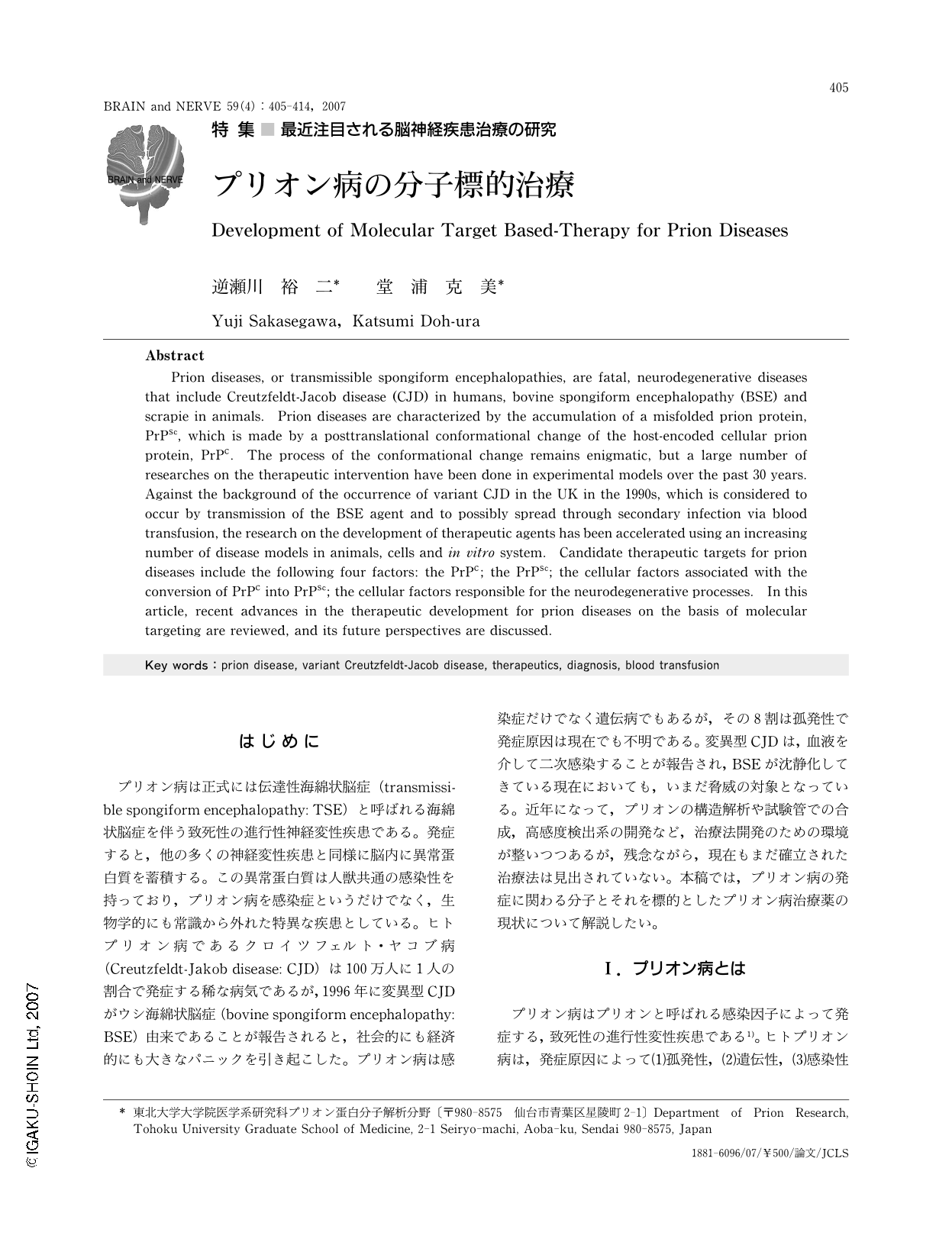Japanese
English
- 有料閲覧
- Abstract 文献概要
- 1ページ目 Look Inside
- 参考文献 Reference
はじめに
プリオン病は正式には伝達性海綿状脳症(transmissible spongiform encephalopathy: TSE)と呼ばれる海綿状脳症を伴う致死性の進行性神経変性疾患である。発症すると,他の多くの神経変性疾患と同様に脳内に異常蛋白質を蓄積する。この異常蛋白質は人獣共通の感染性を持っており,プリオン病を感染症というだけでなく,生物学的にも常識から外れた特異な疾患としている。ヒトプリオン病であるクロイツフェルト・ヤコブ病(Creutzfeldt-Jakob disease: CJD)は100万人に1人の割合で発症する稀な病気であるが,1996年に変異型CJDがウシ海綿状脳症(bovine spongiform encephalopathy: BSE)由来であることが報告されると,社会的にも経済的にも大きなパニックを引き起こした。プリオン病は感染症だけでなく遺伝病でもあるが,その8割は孤発性で発症原因は現在でも不明である。変異型CJDは,血液を介して二次感染することが報告され,BSEが沈静化してきている現在においても,いまだ脅威の対象となっている。近年になって,プリオンの構造解析や試験管での合成,高感度検出系の開発など,治療法開発のための環境が整いつつあるが,残念ながら,現在もまだ確立された治療法は見出されていない。本稿では,プリオン病の発症に関わる分子とそれを標的としたプリオン病治療薬の現状について解説したい。
Abstract
Prion diseases, or transmissible spongiform encephalopathies, are fatal, neurodegenerative diseases that include Creutzfeldt-Jacob disease (CJD) in humans, bovine spongiform encephalopathy (BSE) and scrapie in animals. Prion diseases are characterized by the accumulation of a misfolded prion protein, PrPSc,which is made by a posttranslational conformational change of the host-encoded cellular prion protein, PrPC. The process of the conformational change remains enigmatic, but a large number of researches on the therapeutic intervention have been done in experimental models over the past 30 years. Against the background of the occurrence of variant CJD in the UK in the 1990s, which is considered to occur by transmission of the BSE agent and to possibly spread through secondary infection via blood transfusion, the research on the development of therapeutic agents has been accelerated using an increasing number of disease models in animals, cells and in vitro system. Candidate therapeutic targets for prion diseases include the following four factors: the PrPC; the PrPSc; the cellular factors associated with the conversion of PrPC into PrPSc; the cellular factors responsible for the neurodegenerative processes. In this article, recent advances in the therapeutic development for prion diseases on the basis of molecular targeting are reviewed, and its future perspectives are discussed.

Copyright © 2007, Igaku-Shoin Ltd. All rights reserved.


